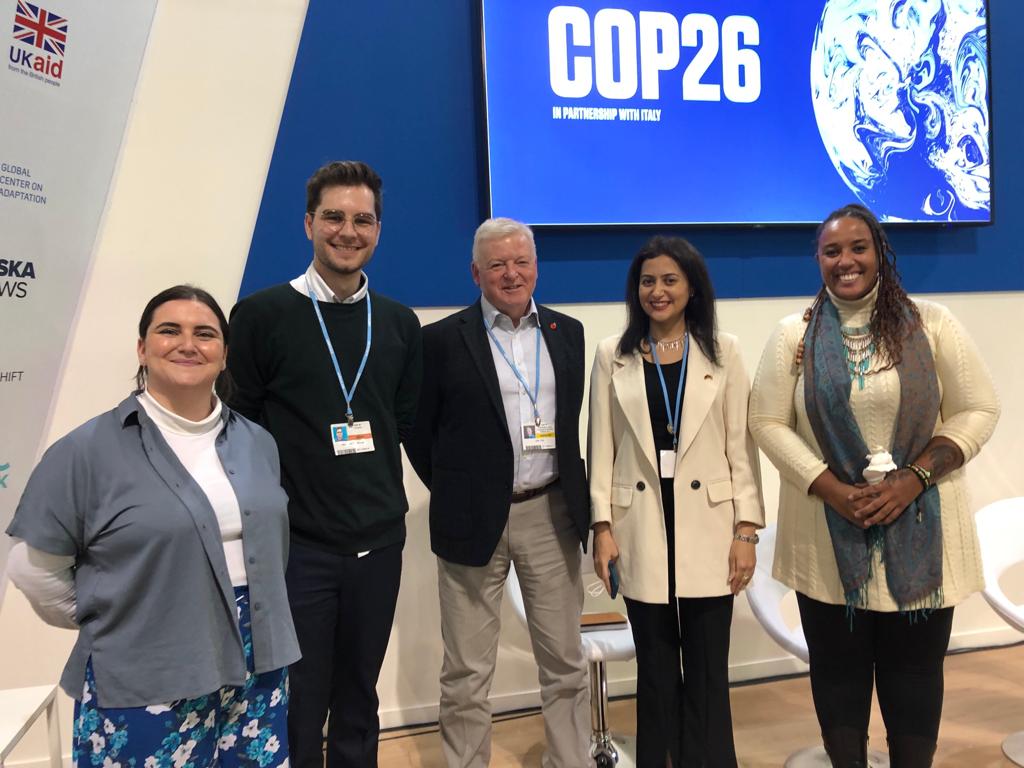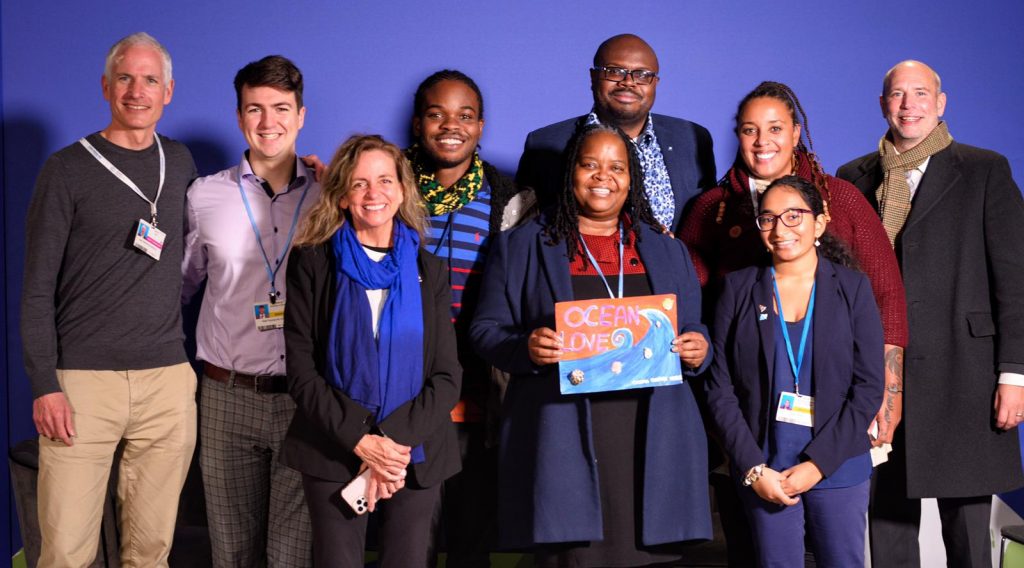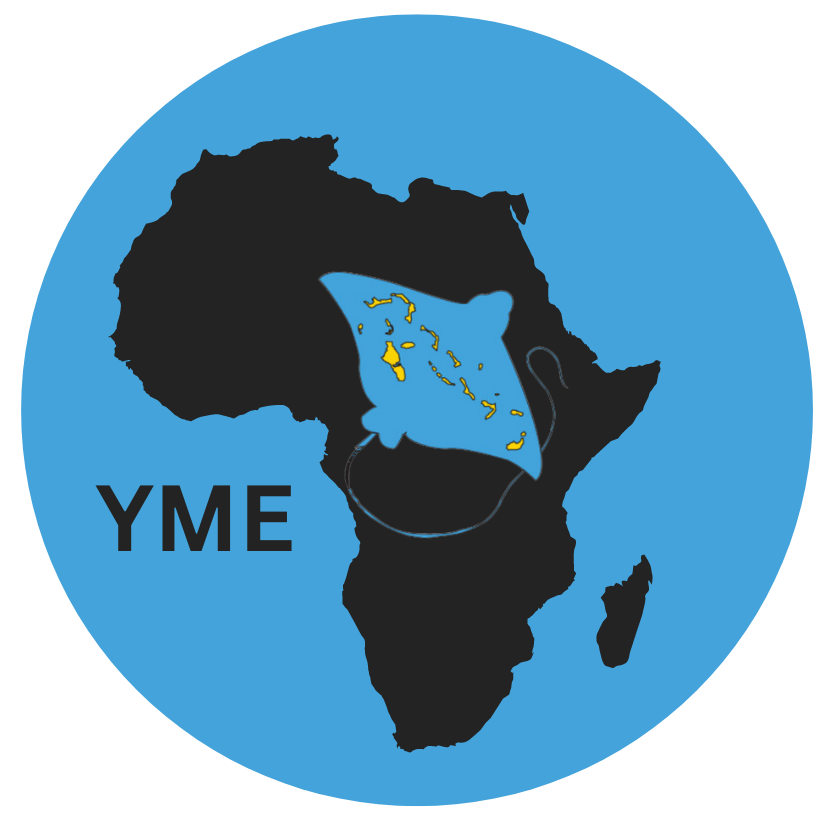One of the priorities for YME during COP 26 was to strengthen our connection with Indigenous Knowledge holders. YME participated in the Local Communities and Indigenous Peoples Platform where we advocated for the importance of ensuring equitable opportunities for local communities especially those from islands throughout The Caribbean to participate in the UNFCCC processes.
Working with UNESCO -IHP YME spent much of our time in the Water Pavilion learning about the complex intersections of water scarcity and the climate crisis. The Bahamas being a water scarce country and recovering from the salination caused by the 25 ft Ocean Surge from Hurricane Dorian highlighted the vulnerability of our island archipelago to climate induced disasters.

The Government of The Bahamas, Bahamas National Trust, and The Nature Conservancy hosted a virtual side event that connected The Bahamian public with the conversations being led by the delegates at the Glasgow meetings.
After learning that the African Diaspora is part of the 6th Region of the African Union, strengthening the relationship between African youth and Caribbean youth became a priority for YME. Climate Change is a global crisis and ensuring that young leaders from the Caribbean and Africa are united in their collective action is a critical to addressing the complex intersections of the climate crisis.

Members of The Bahamian Delegation met with Caribbean youth and a team from the University of Edinburgh where a strategy session was facilitated to identify how education and the convening of young people from throughout the region could help to strengthen our collective climate solutions.
Upon being elected into office the Honourable Philip Brave Davis, Prime Minister of The Bahamas began to champion with conviction the need for climate justice for small island developing states.
